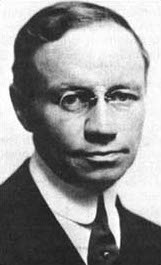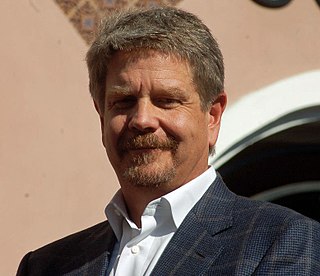A Quote by David Fincher
I was a disinterested student.
Quote Topics
Related Quotes
A Student is the most important person ever in this school...in person, on the telephone, or by mail.
A Student is not dependent on us...we are dependent on the Student.
A Student is not an interruption of our work..the Studenti s the purpose of it. We are not doing a favor by serving the Student...the Student is doing us a favor by giving us the opportunity to do so.
A Student is a person who brings us his or her desire to learn. It is our job to handle each Student in a manner which is beneficial to the Student and ourselves.
There are two ways to be cool: One is to be disinterested and make it seem like you must be doing something much more interesting than everybody else if you are this disinterested. The other is to be extremely interested. You are not trying to please anyone, but you are really invested are really focused.
Sade has a curious ability to render every aspect of sexuality suspect, so that we see how the chaste kiss of the sentimental lover differs only in degree from the vampirish love-bite that draws blood, we understand that a disinterested caress is only quantitatively different from a disinterested flogging.
The majority of men cannot be made disinterested for life by exhortation, by religious services, by any expenditure of subsidized works, or even by grave and manifest public need. They can be made permanently unselfish only by being helped to become disinterested in their individual purposes. In the complete democracy a man must in some way be made to serve the nation in the very act of contributing to his own individual fulfillment. Not until his personal action is dictated by disinterested motives can there be any such harmony between private and public interests.
If you're deeply engaged in an event, you're part of it. But if you're outside of it, disinterested, you are the regard that registers history. And that disinterestedness is different from objectivity. The objective view sees only the event, while the disinterested one participates as well as views by creating that link to history. It's a type of viewing that's both inside and out of the event, that brings to the viewing the capacity for human emotion, for compassion, but holds it openly. And objectivity excludes the human element, and is therefore not a point of view open to humans.
The 7 Practices of Exceptional Student Athletes is an excellent book for student athletes to understand what it takes to be successful. It covers all phases of life, and it is filled with wonderful wisdom. Illustrated by brilliant examples of very successful people, The 7 Practices of Exceptional Student Athletes forces student athletes to use their common sense as they work to achieve their goals. Raven Magwood is a very talented person and an extremely gifted writer.




































